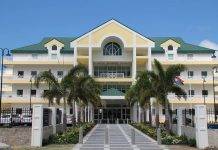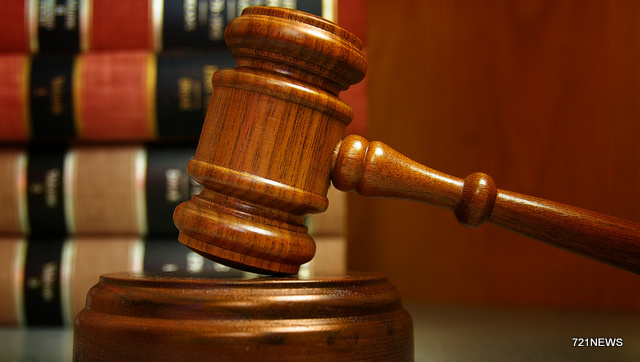By Today Newspaper
GREAT BAY – Former Public Health Minister Maria Buncamper-Molanus and her husband Claudius told the court at the Eco Green trial that they had trusted the advice from (now retired) notary Gijsbertha when they set up the construction with the bogus company Eco Green and that they had no reason to be concerned about its legality.
The court rejected this argument in its ruling yesterday. “The suspects have cooperated with a fake construction, the seeming transfer of the economic ownership. In reality the parties involved – co-suspects Gijsbertha, Havertong, his company SBS as the tenant of the parcel through Eco Green and the Buncampers as the sellers to Eco Green – did not have a real transfer to Eco Green in mind, but a fake transfer whereby the control remained with the apparent sellers, the suspect and her husband.”
The forged notarial deed affected the tax inspectorate “because the suspect and her husband booked the money they received from the transfer not as rental revenue for the income tax, but as tax free revenue from the sales of assets.”
The court concluded that Buncamper-Molanus and her husband cooperated with a fake transfer designed to keep the rent SBS paid for the use of the terrain outside of their income tax obligations. The Buncampers “intentionally filed a wrong tax return. The fiscal damage is 80,000 guilders ($44,693).”
The court established that Buncamper-Molanus directed the administration of Eco Green and its tax returns. The former minister, director of an administration office called Caribbean International Financial Services, took care of the administration and the company’s fiscal affairs.
Boasman, director of an administration office that initially did this administration told investigators that Buncamper-Molanus had taken over the Eco Green dossier. He described Eco Green’s profit tax returns over 2009 2010 and 2011 as “a joke.” The fiscal profit in the 2009 return for instance did not tally with the numbers in the annual account. Boasman also found $92,000 in “expenses” in the 2009 return for which there is no explanation.
Based on the lease agreement with Eco Green, SBS paid monthly $18,750 in rent for the land. In turn, Eco Green paid the same amount as an “installment” on the price it paid for the economic ownership. This way, there was no space to pay profit tax for Eco Green.
There was another problem with the notarial deed that transferred the economic ownership to Eco Green. The Buncampers told notary Gijsbertha – before they signed the deed – that the land was already being leased (to SBS), even though the conditions for long lease prohibit sub-letting.
Nevertheless, the deed contains the line “the property is not unlawfully in use by third parties.”
Furthermore the deed states that the buyer (Eco Green) will use the land only for the storage of building supplies. “It is difficult to justify that, because they sublet it to someone who used it for that purpose,” notary Gijsbertha said during one of his interrogations.
At the trial, Gijsbertha said that the stipulation is designed to protect the buyer, but the court dismissed this argument. “It is there because based on the long lease conditions it was prohibited to lease the terrain to others. It fits with the attempt to disguise the fact that someone else illegally rented the terrain. Based on the statement of the notary, the defendant was aware of this.”
Buncamper-Molanus and her husband also knew that the land was in use by another party that Eco Green, namely SBS. “They had already leased it to SBS,” the court ruling notes drily.
That the Buncampers were the beneficial owners of Eco Green – and not Walters as has been claimed on several occasions during previous court hearings – becomes crystal clear from the court ruling. It quotes from interrogations of Gijsbertha, who said that the setup with Eco Green is known in his business as “a figurehead construction. You put a dummy corporation in between. The intention was that the Buncampers remained the beneficial owners of the dummy corporation and therefore of the economic ownership.”
The $1.6 million down payment mentioned in the notarial deed was not something Eco Green was able to pay. “It all had to come from SBS, but they did not have it either,” Gijsbertha said.
The notary told investigators that he had established the corporation. “The customer, in this case Mr. Buncamper, then comes with his figurehead. That was Mr. Walters.”
Gijsbertha also confirmed that, through a bearer share, Buncamper was the owner of Eco Green. “The one who holds that share is the owner. The intention was that Mr. Buncamper would have it. I gave it to him.”
The court found that the lease agreement between Eco Green and SBS a forgery, because it mentions that the agreement began on February 1, 2005; Eco Green did not exist at that time; it was established on December 19, 2008. “The intention was to turn taxed rental income retroactively into tax free installments on the purchase price (of the economic ownership).”





























